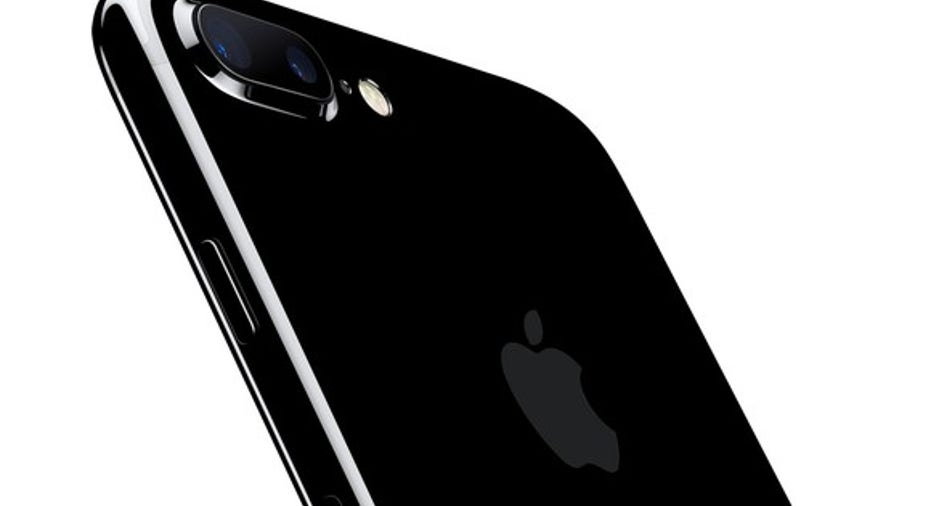Why Sprint Is Still Offering Free iPhone 7s

Image source: Apple.
Wireless carriers had a big opportunity to attract new customers with the release of Apple'siPhone 7, and they were very aggressive in courting them. T-Mobile (NASDAQ: TMUS) was the first to offer a free iPhone 7 to customers turning in a recent model iPhone. Sprint (NYSE: S), AT&T (NYSE: T), and Verizon (NYSE: VZ) soon followed.
But T-Mobile and AT&T ended their promotions over the weekend. Verizon's might not last much longer, but Sprint could potentially continue to run the promotion well into the fourth quarter. That's because Sprint's offer is structured just a bit differently from its competitors.
How Sprint will make money at the end of the iPhone 7's lifespan
Unlike its competitors, Sprint isn't selling iPhone 7s to its customers; it's leasing them. The terms of the lease mean that Sprint gets the iPhone back at the end of 18 months unless the customer opts to exercise their purchase option or simply continue leasing on a month to month basis. Any way you slice it, Sprint stands to make some extra money on the backend.
That gives Sprint an advantage over the competition, which doesn't offer leases. T-Mobile offers a leasing option called "JUMP! On Demand," but it's moving away from it in favor of standard financing. AT&T and Verizon don't lease phones at all.
Sprint is also able to squeeze some extra value from leasing devices by moving its leased device financing off its balance sheet. Sprint's majority investor Softbank (NASDAQOTH: SFTBY) set up a leasing company to buy Sprint leases. In November, Sprint received $1.1 billion from the company in exchange for approximately $1.3 billion in leased devices.
That provides Sprint with a bit more liquidity to invest in various aspects of its business like building out its network or marketing. Competing carriers typically package up their equipment installment receivables into securities and sell them to investors in order to liquidate the assets.
Another benefit of Softbank's ownership
Not only does Softbank conveniently own a phone leasing company, it also owns Brightstar -- the largest distributor of used handsets. In fact, Sprint's current CEO, Marcelo Claure, founded Brightstar. As such, Sprint is able to maximize the value it receives for those used iPhone 6 and iPhone 6s devices its new customers turn in to receive the new iPhone 7. It will also allow it to maximize the value it receives from the iPhone 7 at the end of the lease.
Wells Fargo analyst Jennifer Fritzsche estimates Sprint is able to recover $200 per iPhone 6 device and $400 for an iPhone 6s. She notes that's more than other carriers due to the relationship with Brightstar.
Is it the advantage Sprint needs?
Sprint is finally starting to turn around its subscriber growth with four consecutive quarters of positive postpaid phone net adds. Postpaid subscribers are generally considered more valuable as they're generally more creditworthy and spend more for service.
After the first weekend of iPhone sales, Sprint issued a press release noting iPhone 7 sales were up 375% over last year. T-Mobile, by comparison, said that its sales were up nearly four-times "compared to the next most popular iPhone," which may not have been last year's model, but the iPhone 6.
But if Sprint is able to afford extending this iPhone 7 promotion for several more weeks or even into the holiday shopping season, it could see a great deal more sales.
While T-Mobile boasts its positive switching ratios with Sprint and the other two major competitors in the wireless industry, Sprint has an opportunity to grab share from the larger competitors. It's aggressively marketing against Verizon, and AT&T continues to bleed postpaid subscribers. If the promotion is extended, Sprint investors could see an improvement over the 366,000 postpaid phone net additions it saw in the December quarter last year.
A secret billion-dollar stock opportunity The world's biggest tech company forgot to show you something, but a few Wall Street analysts and the Fool didn't miss a beat: There's a small company that's powering their brand-new gadgets and the coming revolution in technology. And we think its stock price has nearly unlimited room to run for early in-the-know investors! To be one of them, just click here.
Adam Levy owns shares of Apple and Verizon Communications. The Motley Fool owns shares of and recommends Apple. The Motley Fool has the following options: long January 2018 $90 calls on Apple and short January 2018 $95 calls on Apple. The Motley Fool recommends T-Mobile US and Verizon Communications. Try any of our Foolish newsletter services free for 30 days. We Fools may not all hold the same opinions, but we all believe that considering a diverse range of insights makes us better investors. The Motley Fool has a disclosure policy.



















